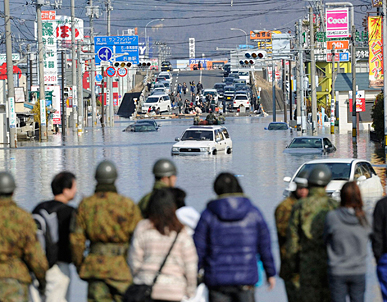Study Snapshot: Japan quake: How hard do disasters hit tourism?
The devastation in Japan will have long-term consequences. But research suggests crises often have a short-term impact on travel
The world has looked on in horror at the accumulating disasters in Japan and a death toll that must surely rise over coming days, weeks and – if there is a nuclear disaster – years.
Japan is no stranger to catastrophe, of course, or to recovery from it. This is a country that has survived not one but two nuclear attacks. The capacity of its people to deal with disaster is astonishing.
The UK outbound travel market will be largely untouched, albeit none of us can be untouched by the scale of the suffering. The disaster will have unpredictable consequences for the world economy. The shutdown of Japanese industry may trigger both a fall in the oil price and lay-offs at manufacturing plants dependent on imported parts from Japan. The markets fell immediately amid forecasts of a renewed downturn.
Consumer survey
The usual lines about the British desire for a break and “the resilience of travel” appear out of place in such circumstances, but they do capture an essential truth about attitudes to holidays.
By chance, research analyst TNS examined precisely this issue for Travel Weekly in a consumer survey in early February. The study followed the overthrow of the government in Tunisia but was conducted while Egypt remained in turmoil.
More than half (55%) of adults said they would be deterred by a terrorist attack from booking a destination, 44% by civil unrest or riots, 37% by a natural disaster, and 28% by government collapse.
However, almost nine out of 10 (87%) of the more than 1,600 people surveyed had never changed, postponed or cancelled a holiday because of concerns about safety or security.
One in 20 had cancelled a holiday, one in 25 had changed a destination and the same proportion had postponed a trip.
To put these concerns in context, holidaymakers’ two biggest worries were falling ill overseas and losing their passport.
Concerns fade
Presented with a list of destinations and asked whether they would consider visiting in the next three months, 62% said they would avoid Egypt and 33% Tunisia.
However, this was at the height of the protests in Cairo’s Tahrir Square. By last week, the Egyptian tourism ministry was sufficiently confident in recovery to launch a campaign to woo tourists back.
At the same time, the survey found only 8% would avoid Thailand, where there was serious social unrest last May, and 7% Mexico, where an outbreak of swine flu dominated the world’s media in April 2009.
Source: http://www.travelweekly.co.uk
Our best wishes lie with all the people affected by this catastrophe, hoping that the worst days have already passed.


COMMENTS
Manolis
Thank you for your comments and insights regarding risk/crisis management. Indeed "visible and objective information about the real risks and what is really affected" is necessary in order to control the destination's image and to re-establish tourism, amongst the other industries, assisting in the regional and national economic recovery.
Ted Manning
Our work with damaged destinations in Phuket (just after tsunami) , Nagaoka Japan (mountain earthquake) Egypt (after civil strife) and also in Canada and China during the SARS epidemic shows that initial visitor response is very rapid and negative, and it takes months if not years to resurrect a destination even after the crisis is over. Bad images last in the mind of the prospective tourist much longer than the actual damage. Images on international TV normally focus on the site of the damage, even if it is only a small area. For example, 94% of the hotel rooms in Phuket Thailand were not damaged and in opreration a week after their disaster. What is needed is visible and objective information about the real risks and what is really affected. The decision of where to travel is often made in the living room with limited impressions and information. A quake, typhoon, or civil crisis may affect only one small area and other parts of the nation may be fine - and need the continuing tourism to not have an added economic crisis. In places like Phuket, the "second tsunami: was the deep economic loss for several years after all had been repaired. Certainly much of Japan (while challenged nationally by the magnitude of the quake, tsunami and nuclear plant problems) is relatively unaffected and is likely to benefit from tourism as soon as those directly impacted are taken care of. Like other nations and destinations, Japan will need rapid re-establishment of tourism as well as its other sectors to help in its recovery. Ted Manning, President, Tourisk Inc.